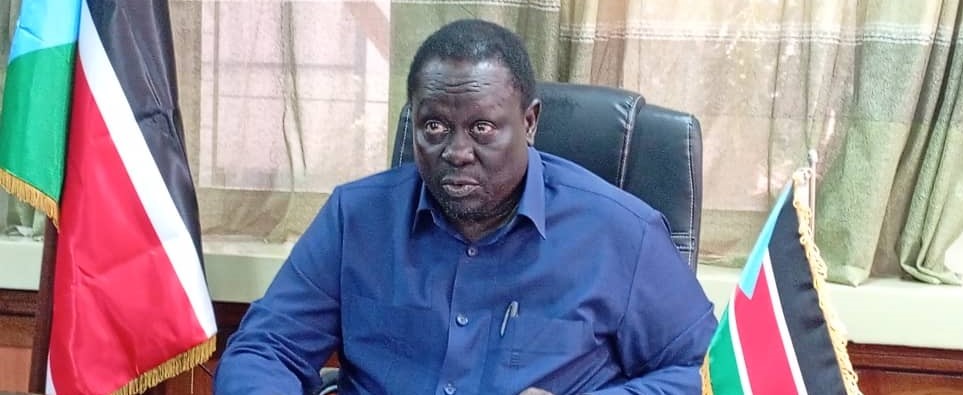South Sudan’s Agriculture Minister Hussein Abdelbaggi Akol will lead a high-level delegation to Aweil on Wednesday to assess government-led agricultural projects aimed at boosting food security.
The visit comes as the Food and Agriculture Organization praised South Sudan’s recent progress in cereal production while highlighting critical challenges in distribution and infrastructure.
Despite vast tracts of fertile land, South Sudan’s agricultural potential has been chronically hampered by a lack of infrastructure, post-conflict instability, and recurring floods. This has left the country heavily reliant on imported food and aid.
Speaking to journalists Tuesday, Akol said the delegation will include the ministers of Livestock and Fisheries, Environment and Forestry, and Wildlife Conservation, as well as a parliamentary agriculture committee chairperson.
The officials are scheduled to inspect the Aweil Rice Scheme and other projects. The itinerary includes a briefing from the state governor and assessments of agricultural infrastructure, the construction of feeder roads, water facilities and a newly established Agro-Mechanical Service Center.
“The government has stationed a practice harvester and other mechanization equipment closer to the farming community to scale up agricultural production,” Akol said.
Separately, FAO Country Representative Meshach Malo cited significant progress, noting that South Sudan produced 1 million metric tons of cereals last year. The country requires 1.4 million metric tons to achieve self-sufficiency.
“There’s definitely progress. For the first time last year, the country was able to reach 1 million metric tons of cereals,” Malo said.
However, he identified poor road infrastructure as the primary obstacle to food distribution. He said surpluses in states like Western Equatoria, which produces 130% of its needs, cannot be transported to deficit areas, leading to spoilage.
Malo also noted that South Sudan has begun exporting fish to neighboring countries like the Democratic Republic of Congo, but currently only in dried form, which reduces its value. He encouraged the country to expand trade of other non-oil products, such as honey and sesame, to boost revenue.




